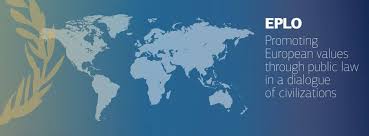
The European Public Law Organisation (EPLO), through its Permanent Observer Mission to the United Nations, convened a high-level event titled “Sudan in Crisis: Voices from Beneath the Rubble for Justice and Peace”, held at the Palais des Nations in Geneva as part of the 59th session of the UN Human Rights Council.
The event sought to raise global awareness of the deepening humanitarian and political crisis in Sudan, widely regarded as one of the gravest contemporary disasters in terms of human suffering.
The country is currently grappling with millions of displaced civilians and victims, amid a marked decline in the international community’s response.
The gathering brought together a distinguished panel of experts and senior diplomats, who underscored that the conflict between the Sudanese Armed Forces and the Rapid Support Forces has resulted in the death of over 150,000 people.
It has triggered the world’s largest displacement and hunger crisis, with nearly 13 million people forced to flee their homes, over 30 million in urgent need of humanitarian assistance, and almost every major city in ruins amid the collapse of Sudan’s economy.
The panel also drew attention to recent U.S. sanctions imposed on the Sudanese military, following verified reports of its use of chemical weapons in the ongoing conflict.
Speakers stressed that “this bloody civil war, which neither party is capable of winning, must end immediately. The time has come for the international community to fully assume its responsibilities and silence the guns. Achieving this requires meeting at least the minimum necessary conditions.”
It was noted that while several attempts have been made by the international community to facilitate dialogue between the Sudanese Armed Forces and the Rapid Support Forces, all such efforts have failed. A key factor cited was the absence of genuine political will—particularly on the part of the Sudanese Armed Forces—to negotiate a peaceful resolution.
The military reportedly withdrew from multiple negotiation rounds and retreated to Port Sudan in an apparent effort to avoid any political settlement.
Speakers emphasised that the army has not articulated any viable political vision for resolving the crisis, continues to reject negotiations with the RSF, and remains committed to a military solution rather than dialogue.
Moreover, the armed forces are said to oppose civilian rule and any transitional process that could lead to presidential elections, thus clinging to power while evading initiatives aimed at restoring civilian governance.
The event was chaired by Ambassador George Papadatos, Head of EPLO’s Permanent Mission in Geneva, who, in his opening remarks highlighted the urgent need for decisive international action to break the cycle of violence and initiate a credible path towards peace and accountability.
Panelists included Dr Victor Digbal from Médecins Sans Frontières (Doctors Without Borders); Ms Mona Rishmawi, a member of the UN Independent International Fact-Finding Mission for Sudan; and Dr Ezzeddine Zayani, President of the Tunisian Centre for Comprehensive Security Studies and former Tunisian Ambassador to the African Union.
The session explored the worsening humanitarian and political crisis in Sudan, now widely acknowledged as one of the most acute humanitarian catastrophes of our time, marked by mass displacement, acute civilian suffering, and a waning international response.
The event brought together a select assembly of experts, policymakers, and representatives of humanitarian organisations.
It was held against the backdrop of deteriorating conditions in Sudan, amid warnings of imminent famine, mounting reports of the use of internationally prohibited weapons, and the near-total collapse of the state’s institutional framework.
DISCLAIMER: The Views, Comments, Opinions, Contributions and Statements made by Readers and Contributors on this platform do not necessarily represent the views or policy of Multimedia Group Limited.
DISCLAIMER: The Views, Comments, Opinions, Contributions and Statements made by Readers and Contributors on this platform do not necessarily represent the views or policy of Multimedia Group Limited.



